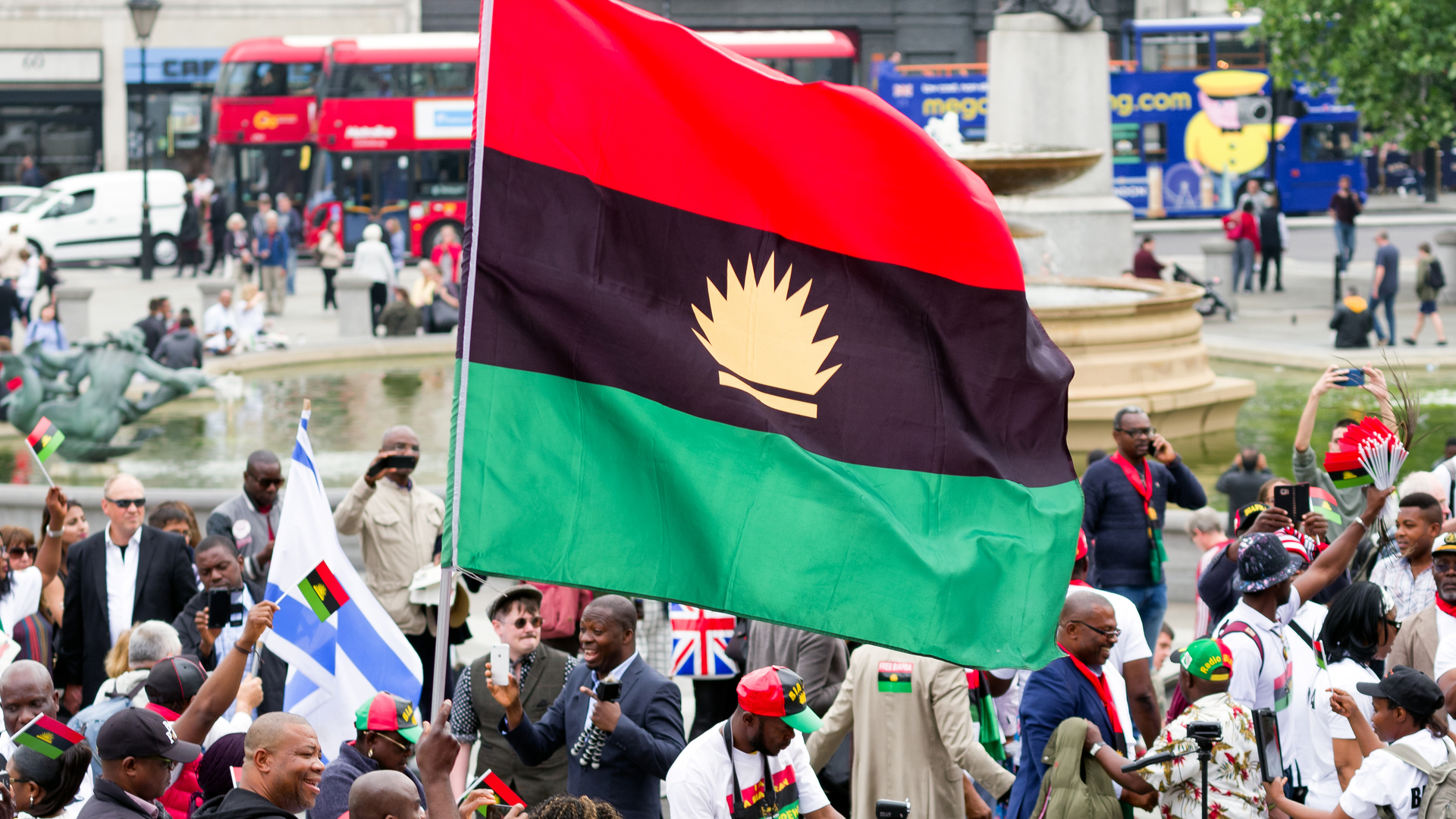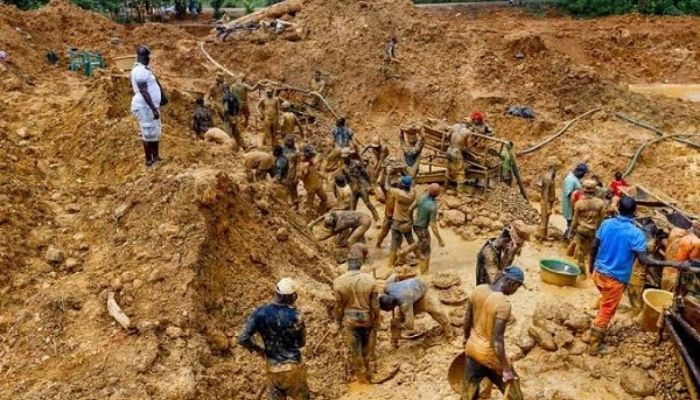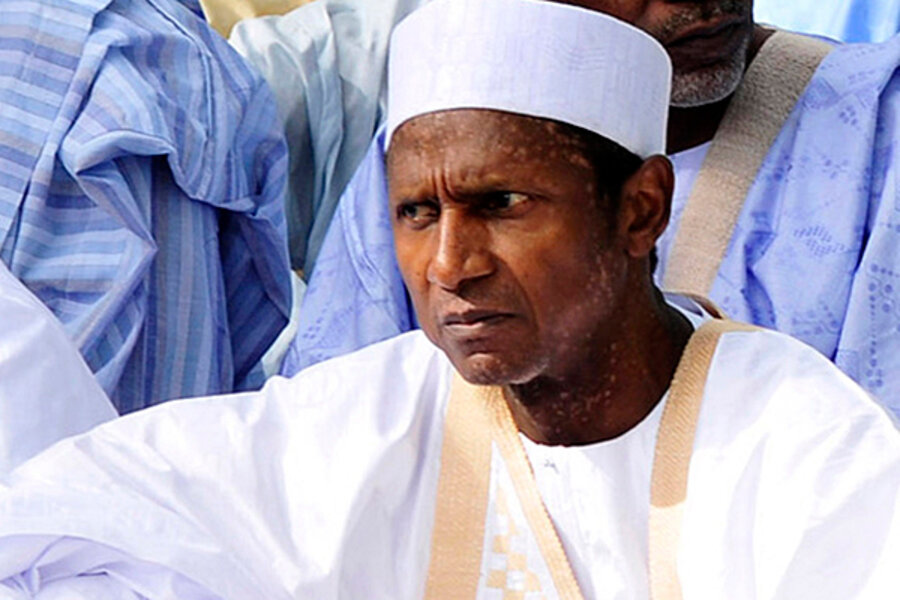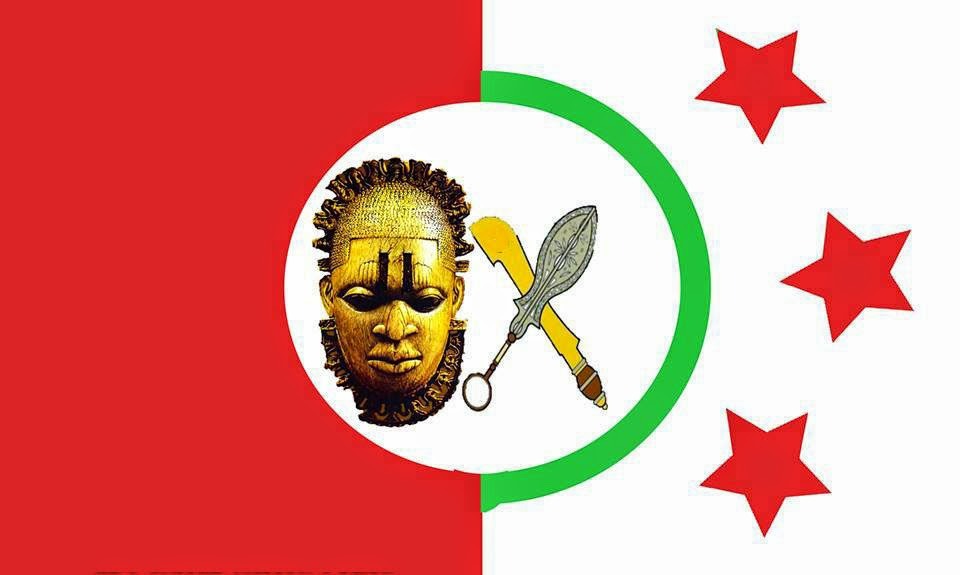The much awaited National Political Reform Conference had finally taken-off and is presently on the second lap, who knows, possibly the last or else….as many predicted an extension even before the conference took-off. The question is, whatever were the objectives of the conveners and the principle behind the attendants, one cannot help but to travel down memory lane as far and as near as possible.
This “Colonial Mistake”, Nigeria has seen it all, the calling for such conferences, the refusal to attend, the walkouts, mutual compromises and the unity of minds of the participants to form a formidable front against their conveners when the opposite was expected Again one cannot help but ask, what was actually in the mind of Lord Lugard and his co-architects when they were contemplating the design and the eventual creation of the Nigerian nation. Born about a century after that sad but blessed amalgamation, I have no option than to think that the amalgamation was laid on bricks made of ashes, not meant to last, not designed to endure the heavy titans with such divergent strengths and weaknesses. However, it was carefully built to last the services of the colonization period This I think, this I feel, this I am sure is right; this I pray should be wrong Nigeria – indeed whether a “colonial mistake” or not, not even Lord Lugard, the father of the amalgamated Nigeria foresaw the unpredictability of the nation National Conference, Sovereign National Conference and now National Political Reform Conference. Who is afraid of a National Conference? Yes, with due respect to Dr Bala Usman and his teaming History professionals, history which sadly keeps repeating itself, seem NEVER to be taught well in schools.
But possibly, it is just that man, whatever type of animal he is – political, economical, or a historical being, no matter his strings of degrees, his age or even his social standing in the society, simply does not learn from HISTORY! This might perfectly excuse the Bala Usmans of this nation Even those of us, toddlers, read about how the three regions, each carrying the personality of her Premier, fought each other in such conferences and only when least expected, wore a united front and dealt the “devil” the severe blow that freed us from the draconian chains of colonization.
It was a shock that the colonial masters are yet to recover from. In spite of the in-fighting, when each region missed no opportunity to sling mud at the other, we know that when the chips were down, it was not America that is ‘God’s own country’, no! It is Nigeria!! And God always and shall always take care of His own!!! Let me pose the question again, who is afraid of the National Political Reform Conference? Why are the Nigerian masses afraid that the ‘wise men’ at the National Political Reform Conference are not working towards national interest, that there is a dog guide charting their course?
Why are the masses afraid of the manoeuvrings of the conference proceedings by the powers that be? Understandably, many are apprehensive of the outcome of the conference. But why care? As an ordinary citizen, whatever becomes of this great nation, my primary concern is my stomach, so is the message permeating the air from our leaders, it seems Come to think of it somehow they are right. I have but only a few years to live and go I must, I came like air and like air I must go.
I have nothing historical at stake – they, the conveners of the conference and their allies, our leaders of today, do have. Yes, they have a lot at stake. No matter how they came, either like air or water, history is watching as they would be leaving like water. Posterity shall always be there at their doorsteps. We only need pray that whatever may change after the conference, May God “give us the men with the wisdom and the undaunted courage to cope with any prevailing situation.” Obafemi Awolowo, 14th January, 1960. The conferees must make use of the singular “…occasion to cross parliamentary swords” and leave an indelible legacy in the annals of history because they “must be held responsible for any breach between the North and South, which nature had indissolubly united in a political, social and economic marriage of convenience. In my personal opinion, there is no sense in the North breaking away or the East or the West breaking away; it would be better if all the regions would address themselves to the task of crystallizing common nationality, irrespective of the extraneous influences at work.
What history has joined together, let no man put asunder. But history is a strange mistress which can cause strange things to happen!” However, they must utilize this golden “opportunity to render service to the cause of unity and freedom in Nigeria… (Nnamdi Azikiwe May 12, 1953)”.
Each conferee should bear at the back of his mind as Dr Azikiwe did on October, 3, 1952, “I regard it as an immotal privilege to be an instrument of social change for the rehabilitation of my people. But I realized how puny I am at the hands of fate and I know how insignificant I am for this historic role. Therefore, I must be humble, I must be God-fearing, I must be self-effacing, if I am to prove equal to this rare opportunity.” Posterity shall judge you – the conferees base on “not who is right, but what is right” for Nigeria. The conveners of the conference and the masses alike, agree on one point, that each conferee is “enlightened in his interests, impersonal in his judgment, ready in his sympathy for whatever is just and right, effective in the work he sets himself to do, and willing to lend a hand to anyone who is in need of it” in the cause of Nigeria’s unity. “We hope that you will do all in your power… to work for the continued unity of Nigeria.” Obafemi Awolowo, 30th June, 1967, for “this is a great opportunity for the forces of progress to forge ahead and make Nigeria strong, united and prosperous”, Nnamdi Azikiwe, November 14, 1954 The masses should put their hearts at rest, because when the chips are down, Nigeria – ‘God’s own country’, shall be protected by none except Allah! Or are we such a forgetful nation? For certainly we are not ingrates, because in our very recent history, when the chips were down, the good Lord intervened and Nigeria saw the ‘lights’ of democracy and blessed this crop of leaders, so why worry if they want to spite the Grace that blessed them? My dear brethren, once more let’s put our hearts at rest, the Almighty shall prevail in the final decisions of the conference. If only they would heed the ancient wisdom of our founding fathers as they tackled the various conferences of their ancient time and bring it to use in our modern time, if only they would heed the ancient wisdom of our founding fathers, if ONLY!
1. We do not believe in a Nigeria that is free and disunited. We do not believe in a Nigeria that is united but not politically free. We believe in a free and united Nigeria that is capable of guaranteeing to its co-ordinate units equality of opportunity, parliamentary democracy, respect for the constituted authorities, economic security, and the fundamental human rights. Nnamdi Azikiwe, November 7, 1954
2. I cannot praise too much any organisation in which men hailing from different Regions in Nigeria act together as one team, submerging all differences, whilst they strive for the honour of their beloved country – Nigeria. … Abubakar Tafawa Balewa, February 7, 1958
3. It is not uncommon for parties in a country, no matter what political views they hold, to unite to work for a common cause. It was done at the time of a great national emergency by the British in 1940; it should be done by us today. Now is the time when co-operation is most essential. Let us all get together and try to forget our political differences and petty tribal jealousies and work together to create a strong and united country. I am confident that we can do so. Abubakar Tafawa Balewa, September, 1957
4. Between that debate and the General Conference on the Review of the Constitution held at Ibadan at the beginning of 1950, our unanimity, as I say, showed that there had been a remarkable degree of evening up in the constitutional development of the different parts of Nigeria. Much of the jealousy, envy, prejudices and such-like things which made it difficult to work together at the beginning of representative Government in Nigeria had disappeared.
Energies which had been directed towards confusion were devoted towards construction and the good of Nigeria. Abubakar Tafawa Balewa, August 15, 1959
5. As a young man, I saw visions. I do not doubt that as an old man, I shall dream dreams. Some of the dreams must be of my relentless struggle for the peoples of Africa, and for the cause of Nigerian freedom and unity. I trust that I shall dream my dreams amid the peace and ever-increasing prosperity of the people of my native Nigeria. The motto of the independent Federation of Nigeria is ‘Unity and Faith’. I pray that we may guard our unity and keep our faith. Nnamdi Azikiwe, 1960
6. If we would pool our wisdom, vision and experience, there is no doubt that we should be able to convert the misfortunes of the past into the greatest benefits of the future. We must be prepared with the true African spirit of brotherly love to concede to the other fellow the right to his own point of view and to give him the benefit of the doubt; we must make no room in our minds for acrimony and rehearsal of past wounds and bitterness. We shall thus be able to overcome those things that divide us as well as give strength to those organic forces of cohesion that unite us. This is not the time for apportioning blame, but one for accepting the challenge of reconstruction. Abubakar Tafawa Balewa, January 26, 1962
7. Far better that we should show our feelings than conceal them. Between good friends, brothers shall I say… there must be frank understanding. Lack of frankness leads to suspicion, suspicion engenders mistrust and mistrust breeds enmity. But so long as we speak with an open mind and know one another’s thoughts and respect them, even though we cannot agree with them, we shall remain good friends. Ahmadu Bello, Sardauna of Sokoto, August 22, 1959
8. Come then, my fellow countrymen! Let us sacrifice all we can for the great honour of winning freedom… We should, therefore, be prepared to wage war on two fronts: war against those who deny us political, economic and social freedom, and war against individuals or groups of individuals that attempts in any way whatsoever retard our speed towards a United Nigeria. Sa’adu Zungur, 1948
9. It is essential that ill-will be not created in order to encourage a Pakistan in its country. The North and South are one, whether we wish it or not The forces of history have made it so. We have a common destiny; so, too, have the East and the West Any attempt from any source to create dissension and make the North feel that it is different from the South and the West from the East, or to make any particular nationality or tribe in Nigeria feel it is different from the others should be deprecated. Nnamdi Azikiwe, July 13, 1946
10. If we had placed party interest before national interest and insisted on having our way, there is no doubt that we have the leaders with the academic background, the professional qualifications and the political experience to shake the Colonial Office to its very foundation; but the Conference would have floundered on the rocks of erudition, logic, mistrust and selfishness, and the very lips which shout glibly that the NCNC are plan-less followers of a party which they imagine had pocketed our leaders, would have accused us of inexcusable parochialism. Nnamdi Azikiwe August 29, 1953
11. The young plant of democracy is already suffering violence at our hands in the name of unity, harmony and concord. If this plant were destroyed (which God forbid) we might have unity of some sort: but we would have neither harmony nor concord. Obafemi Awolowo, 14th June, 1958
12. After the 1939-45 war the development of Nigeria really started. We have had a bewildering number of constitutions and constitutional conferences. In 1947 the Richards Constitution, named after the governor of that time, gave each unit of Nigeria that is the East, the West, the North and Colony of Lagos, fairly broad powers. In 1951 further powers were given to each unit and a semi-federal system was introduced. In 1954 the revision of the constitution extended even greater powers to the regions, and Lagos was made the Federal Capital. Further constitutional conferences took place in 1957 and 1958 and again this year in May. These conferences were mainly to decide the form which an independent Nigeria should take. Ahmadu Bello, Sardauna of Sokoto, July 6, 1960
13. The Northern Peoples Congress has earned the respect of the people of Nigeria following the initiative taken by the Sardauna to convene a Premier’s Conference in Lagos, last April, which agreed that Nigeria should demand complete independence from Britain, to take effect in 1959. For this decision, its leaders have been subjected to severe strictures from certain sections of the British Press; nevertheless the Sardauna has reiterated the desire of Northerners to join with their Southern compatriots in seeking for complete freedom in 1959 Nnamdi Azikiwe June 11, 1957
14. The delegates of the different political parties in London are all aware of the great importance of this particular Conference. In spite of their differences in political outlook the delegates have one common bond, a burning wish to see the Federation achieve independence in April 1960, and we know that the Government of the United Kingdom is prepared, indeed anxious to grant this wish provided that we can reach agreement amongst ourselves. Indeed, we shall all be held to most strict account before history if we fail to do so. I hope that we shall all of us regard ourselves as Nigerians first and put the interests of our respective parties second to those of the country which we have been elected to serve Abubakar Tafawa Balewa, October,, 1958
15. Let me say that it was a rare privilege to work with my fifteen colleagues in London. They were patriotic, loyal and co-operative; but they were people with conviction and were neither servile nor hypocritical. I am proud to have been a member of a delegation where, unlike my experience of six years ago, team spirit was the rule and the issue was not who was right but what was right for Nigeria. Here you see them, leaders in their own right, unrelenting fighters in the cause of Nigerian unity and freedom; yea a collection of sincere nationalists who had been tried and tested in the crucible of time. We are happy warriors because we have Nnamdi Azikiwe August 29, 1953
16. We told the London Conference that we believe deep down in our hearts that we could achieve constitutional unity in our country without uniformity. To put it in classic phraseology, we can achieve what the Greek philosopher, Heracleitus, described as ‘unity in diversity and diversity in unity’. Nnamdi Azikiwe August 29, 1953
17. We, therefore, refused to subscribe to the curious thesis that we were not a nation, or that we could not become a nation, because of our ethnic and linguistic differences. We opposed the idea that because we differed in culture, language, tradition, and outlook, therefore we could not achieve national unity, even at the constitutional level. Nnamdi Azikiwe August 29, 1953
18. If the unity of this country is to be lasting and if our people are to have abiding peace and happiness, each ethnic or linguistic group in Nigeria must be assured of political self determination within the Federation. Obafemi Awolowo, 1953
19. In unity, we gain many things, including economic independence, and the welfare of our entire peoples.
But, in division, we would lose many things, and gain nothing but neo-colonialism, permanent economic bondage, and mutually destructive hostilities among ourselves. Obafemi Awolowo, 1st October, 1967
20. Again and again politicians from one camp have preached disunity. They have made unwise and impossible demands. They insist that they must carry out their selfish ambitions to the full or the Federation must go. They have urged that the south must unite against the North or the Federation must go. They have demanded equal representation of the regions in the Federal Parliament or the Federation must go. These demands are not only selfish but disloyal to our constitution. They are been made by men who only talk of unity but do not want to accept its implications, foremost among which is a spirit to give and take. Ahmadu Bello, Sardauna of Sokoto, September 16, 1959
21. The most important result of the constitutional changes in 1954 was the introduction of a federal form of government for Nigeria – a system which I had advocated as far back as 1948 in the old Legislative Council. I am pleased to see that we are now all agreed that the Federal system is, under present conditions, the only sure basis on which Nigeria can remain united. We must recognize our diversity and the peculiar conditions under which the different tribal communities live in this country. To us in Nigeria therefore unity in diversity is a source of great strength, and we must do all in our power to see that this federal system of government is strengthened and maintained. Sir Abubakar Tafawa Balewa, September, 1957
22. I charge you to cultivate FIDELITY and FELLOW-FEELING among yourselves, eschew any acts of treachery among yourselves, work for the unity, welfare and greatness of Nigeria… Obafemi Awolowo, 6th July, 1963
23. But it is significant that whilst the Northern and Western Region Native Authorities continue to show increases up to the present moment, it just happens that in that part of the country, the Eastern Region, where politicians have been accused of scaring people about taxation, the revenues of the Native Authorities have been falling! I quote: In 1951, that is 31st March, 1951 the revenue of the Northern Region Native Authorities is £3,379,000.
In 1952, 31st March, again, Northern Region £4,520,000,
Northern Region again, 31st March, 1953, £5,086,000
Northern Region, 31st March, 1954, £5,643,000
WESTERN REGION
31st March, 1951 £1,464,000
31st March, 1952 £1,665,000
31st March,1953 £1,969,000
31st March,1954 £2,134,000
EASTERN REGION
31st March, 1951 £1,061,000
31st March, 1952 £1,135,000
31st March, 1953 £996,000
31st March, 1954 £993,000 Obafemi Awolowo, 16th August, 1954
24. The strengthening of the social services and economy of the North will mean greater strength to a united Nigeria. Ahmadu Bello, Sardauna of Sokoto, May 13, 1961
25. We have many resources in the North, which through neglect prior to 1952, we have not fully developed. My intention is to harness and encourage the nationalism and enthusiasm of all … so that by a concerted and united effort we shall develop these resources far more fully than in the past Ahmadu Bello, Sardauna of Sokoto, May 13, 1961
26. In developing the economy it is our policy to give ample opportunity to all Nigerians whatever their belief or origin. The resources of Nigeria, whatever they may be, belong to all of us and we must all take part in developing them and share them fairly among our people. Ahmadu Bello, Sardauna of Sokoto, October 31, 1964
27. Once again in our appeal for unity we tell Nigerians of all parties and of all regions, ‘facts must be faced’. We cannot gloss over facts and expect problems to solve themselves. If there are wrongs they must be redressed. Above all we must continuously remember that in the Federation, no region can be ignored or excluded. Talk about the unity of any number of regions against other regions merely to satisfy personal ambitions only leads to certain danger. Whatever we plan, let us plan it for the good of Nigeria as a whole. Ahmadu Bello, Sardauna of Sokoto, July 16, 1960
28. ….only if we are united can we achieve our goal in the proper way. You know that I am always talking about this need for unity, but I shall never stop asking you to realise its overwhelming importance.
The fact that I repeat my call for unity again and again does not mean that I think it is lacking now, but that I am convinced it is the life blood of our existence as an independent nation. Abubakar Tafawa Balewa, January 1, 1958
29. Tolerance and goodwill must, and shall, prevail We will never adopt measured which will discriminate against any section of our communities because of their religious beliefs or because of their customs, provided only that those beliefs and customs do not militate against the requirements of law and order Ahmadu Bello, Sardauna of Sokoto, 15 march, 1959
30. Tribalism is a destructive force and its worst and most evil form is the appeal to a group of regions to come together against another region. This surely should not happen in one country, a country which daily proclaims its desire for unity. It is both dangerous and shortsighted. It is unwise to found any solution to a problem on the basis of hatred and inordinate ambition. Hatred and inordinate ambition are the driving forces behind those who have been appealing to some regions (not parties) to come together and line up in battle array against another Ahmadu Bello, Sardauna of Sokoto, September 16, 1959
31. Ibo people must not allow themselves to be transformed by the forces of prejudice into beasts who know only the law of the jungle, that is, might is right. Rather, let knowledge and reason prevail so that they may agree with others, when they must, and disagree when necessary, and let them do both these things without losing their bearings. Nnamdi Azikiwe, December 19, 1954
32. The Ibo people have reached a cross-road and it for us to decide which is the right course to follow We are confronted with routes leading to diverse goals, but as I see it, there is only one road that I can safely recommend for us to tread, and it is the road to self-termination for the Ibo within the framework of a federated commonwealth of Nigeria and the Cameroons, leading to a United States of Africa Other roads, in my opinion, are calculated to lead us astray from the path of national self-realization Nnamdi Azikiwe, September, 1947
33. At the end of it, I was surprised – though pleasantly because of my previous stand in the matter – to be faced with the rationally and scientifically unassailable conclusion that only a truly federal constitution can unit Nigeria and generate harmony amongst its diverse racial and linguistic groups. Obafemi Awolowo, 4th August, 1966
34. Whatever may change after October 1 of this year, since the attainment of independence in 1960, we have travelled very far indeed. In the course of our eventful journey, we have scaled dizzy frightening heights, and leaped across yawning gulfs, which threatened to impede our march and swallow us.
Obafemi Awolowo, 30th June, 1971
35. We believe firmly that there will be no future for any of us in Nigeria unless our Federation represents a truly united nation, loyal to our people, loyal to our common interests, without regard to differences in faith or regional origin. Ahmadu Bello, Sardauna of Sokoto, October 12, 1960
36. If we must have lobby, let us have lobbies which will unite Nigerians through their common interests, rather than tribal groupings which disunite them Ahmadu Bello, Sardauna of Sokoto, July 16, 1960
37. Kaduna the powerhouse of Nigerian politics is no more. And with it has gone one the political estate it represented the old North. To foreign journalist, that estate was the bull elephant in the Nigerian Jungle. For its sheer size and roguish habits, it alone stood between Nigeria and its unity. Typical of the men down south, their politicians and journalists swallowed this piece of foreign do-gooder mischief without examination, swallowed it with the added contention that the old North was also conservative, reactionary, feudal, lazy and illiterate. Paradoxically, they also accused it of dominating Nigeria. The fact that when the crunch finally came and Nigeria needed saving, and needed it badly, it was Kaduna and its children who came to the rescue which is final proof that all along, Kaduna has been abused more for its ability to demonstrate superior political skills than its opponent at home and abroad were willing to admit. That it weathered every storm and came out honourably of the onslaught which reached its climax on January 15, 1966 and so on to the day when Kaduna disappears is yet more evidence of that skill and magnanimity, a spirit of sacrifice which Kaduna has never been associated with by her eager critics … let no one mistake magnitude of what has been done. Ibrahim Tahir, 30th March 1968
38. From my close observation, since we became a sovereign state, it would appear that we were avidly awaiting to earn our freedom, to use this earned freedom to make life intolerable and impossible for ourselves. Dr. Francis Akanu Ibiam.
39. Let us not deceive ourselves. If we want unity, the first thing to do is to build the foundations of mutual friendship. Northerners and Southerners must not look down upon each other. We are members of one country, --- ABUBAKAR IMAM, 1943 40. There is no doubt that comparing then and now is to say for short no comparison. The roads were rough and rugged, the towns were mere villages with practically no good drinking water and the health facilities were to say the least very scarce. How we existed on the paltry pay, how we kept our selves happy was because there were no molestation and the need to dedicate ourselves to our duties made us diligent and contented. Where our hands could not reach, we did not attempt to get to by force ….. We did things for doing sake and not for instant reward T.W. Bako 41. What a splendid journey it has been and what a swift one. Who would have thought on that desperate day on the battlefield at Sokoto that, well within a man’s lifetime the stumbling collection of squabbling states would be united in dignity and power to form one of the great free countries of the world? Ahmadu Bello, Sardauna of Sokoto, 15 march, 1959.
42. …. in the last resort we must now shape our own future. Sir Ahmadu Bello, Sardauna of Sokoto, August 6, 1958
43. The future is going to be what we make it. Obafemi Awolowo, 16th August, 1954
44. Let us therefore pray that God will give us the strength and wisdom to lay our bricks straight and true, plumb, level and square, and that He will give His blessing to our efforts to increase the peace, happiness and prosperity of our people. Ahmadu Bello, Sardauna of Sokoto, May 18, 1959
45. We should think of the future and of our children, so that they would not repeat the mistakes of the past. . Nnamdi Azikiwe, December 19, 1954
46. All that remains for us all to do now is to roll up our sleeves, buckle down to hard work and sweat profusely so as to maintain unity and freedom in Nigeria. In our daily lives we can further it. The way we speak of other Nigerians and the way we behave towards other Nigerians will decide whether there can be unity in Nigeria or not. In spite of handicaps, let us forge ahead, facing the stark realities of life, admitting our shortcomings and changing our preconceived notions about our fellow human beings.
That is the way to win the confidence of our people, be they Northerners, Easterners, Westerners or Cameroonians. That is the only basis to justify our march in unity to freedom. Nnamdi Azikiwe August 29, 1953.
CONCLUSION
1. All that I have tried to do is to hold up a mirror so that you can see your own reflection. If you do not like what you see, breaking the mirror will change nothing, neither will cutting my arm off, killing me will change even less. The truth of a man cannot be dissolved in his blood. Patrick Wilmot
2. In a country such as ours with its broad diversity of race, religion and culture, we cannot expect that the recommendations …will please everybody. Whatever the Conference may ultimately decide on them, some people are bound to be disappointed and I trust that they will accept those decisions in the knowledge that their delegates will have taken them in the interests of Nigeria as a whole. Abubakar Tafawa Balewa, October,, 1958
3. You are all mature statesmen seasoned in the conduct of international transactions, tempered by humility before history, and inspired by a vision of our goal of unity and of the full restoration of the dignity of man in Africa. I have every confidence in your ability to achieve real success at this conference. Abubakar Tafawa Balewa, February, 1964
4. Well, you are going to discuss this…. I must not steal your thunder, but I warn you that I shall study very carefully every word which is spoken in this conference and I reserve the right to come and address you again. Abubakar Tafawa Balewa, 1962.
Usman, Sule Machika is undertaking a Masters in International Affairs and Diplomacy (MIAD) degree in Political Science Department, ABU, Zaria 08033800961. Usman_machika@yahoo.com












